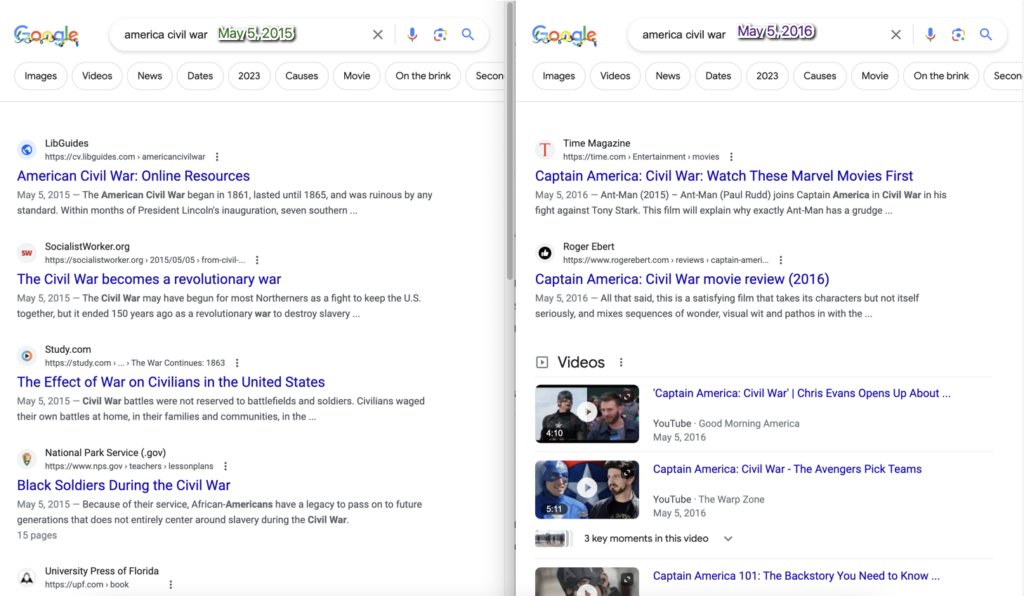Organic traffic is down 30% globally, Y/Y. It started in June of this year. I have the time frame; I have the traffic channel; I don’t need another gosh darn site audit confirming what I already know!
-Anyone who reaches out to SEO agencies to solve a problem
This is a lament I hear a lot and — believe me — I get it. You don’t go to a doctor saying, “my stomach hurts” only for them to press on your belly, hear you squeal in agony, as they affirm, “it seems like your stomach is the problem area.” So does this mean I agree with the non-SEOs’ lament?
Yes!
Does that mean you should immediately write off any agency asking to do a tech audit?
No.
The thing is, there’s good and bad site audits and I’ll go into more detail as to what that looks like, but to start, let’s address why you should still consider an agency (or contractor) wanting to do a full site audit.
What’s the point of an SEO site audit if I know the problem?
Changing metaphors. Let’s say the organic traffic loss is like a leaky roof (SEO is like a house after all). You know the roof is leaking, you know when you noticed it, but you don’t know where it originated or how widespread the problem is. From the outside, if the roof is growing moss and most shingles are fish-mouthing, you’ve got a pretty solid idea the roof needs to be replaced. But if those obvious indicators are not there, then all you’ve currently got to go on is the leak’s point of origin. Is it leaking anywhere else and you’re not seeing it because of how you’ve situated your attic storage? Are there drip stains within the second and first floor walls? It the gutter on the outside of the house dented or recently been inhabited by a family of squirrels?

The site audit’s job — a good one anyway — is understanding if it is as cut and dry as it appears to be or if there’s something else going on. And believe you me, I’m fully aware that sounds like a shady automotive repair person, but it’s truly no different than any long-term, unaddressed problem. A straight A student doesn’t suddenly flunk out of school, there’s a gradual increase in absences, tardiness, & missed assignments. Even a heart attack rarely happens out of the blue, usually there’s years of hypertension, stress, high cholesterol and a build-up of plaque.
This is why a full site audit is necessary, it should uncover the trends/practices that led to the drop and/or isolate why you experienced the drop — maybe your kid drilled a hole in the roof. We don’t know what we don’t know, so a full site audit can get to the bottom of the matter. Which brings us to the real question:
What’s the difference between a good site audit and a bad site audit?
This is the “question behind the question” and we’re at a solid cross-roads where this is easier to pin-point before any contracts are signed.
1. Do they ask for analytics access?
You can learn a lot about sites from third-party tools, but if they ask for your data there’s a stronger indication they want to get inside and look around. It’s a leg of the onboarding process that could extend timelines and, in some cases, needlessly prolongs the turnaround time for when this’ll be completed.
… so is this a good thing or bad thing?
It’s a good indicator, but not a guarantee. What gives you (the client) control is asking the following question: what specific analytics tools do you need access to?
Obvious, right? Here’s the thing, we’re at a unique cross-roads where Google’s Universal Analytics has (mostly) sunset and GA4 has taken over.
So?
Well, GA4 and UA are two separate accounts whether you’ve personally migrated your analytics or allowed Google to do it for you.
Again, so?
Well, an indicator you’ve got a good agency/contractor is if they specifically ask for both! Reason being, GA4 took over in July — or July of 2024 if you’re on paid UA — and it has a different method of tracking landing pages and users. So having some connective thread between June 2023 and July 2024 isn’t just nice-to-have, it’s critical to understand how your business is performing.
Example: Accounting (in the US) in the Time of COVID
As anyone whose filed taxes since 2020 can tell you. Tax seasons have been weird. For the 2020 tax year, it got pushed May 17, 2021; for 2021’s tax year, it could be extended to October 15, 2022. Even in 2023, if you lived in California, you could push taxes to a later date as well.
The point being, your full site audit should take into account, your traffic beyond July 2023 – present. So a good indicator you’ve got a good agency is if they ask for both UA and GA4 access.
Of course, this is all assuming, you used Google Analytics to begin with, so how can you determine how valuable it’ll be if you haven’t or — gasp — if you use Adobe Analytics? That lends itself to a good followup question regardless of your analytics continuity?
2. How far back are they going to look?
At the very least, if they only request GA4 access, but claim they’re going to look back 12 months, you know you’ve got a fraud.
Now, to be fair, 12 months of continuous analytics is probably plenty, but I say this as someone who was certain in March of 2020 that people were overreacting and it’ll be business as usual — which, to be clear, I lived in Seattle where the city effectively shutdown in “February 2019” due to an overwhelming blizzard — and while flights were canceled and over 1600 cows died, you’d be amazed at the lines outside of grocery stores as people stocked their homes thinking they were going to be buried for the next 4 months.

My point being, a lot can change in 12 months, and what happens in 12 months may not be comparable to what happened in the preceding 12 months, but — if I had it my way — everyone would look at the last 2 years.
3. Which competitors are they going to look at?
Again, this is another “question behind the question.” Do they only ask for your named competitors or do they specify they’re also going to draw from organic competitors? There can be a severe difference between “named competitors” and “organic competitors”.
Example: Doctorates of Social Work
There was an education site that believed it “had no direct competitors” seeing as it was one of the few schools offering a doctorate of social work. Now there are plenty of people who claim to not have competitors — they’re usually bullish, naive, and it probably pays 7 figures to talk like that. Meanwhile, there are people who claim everyone (and every activity) is a competitor, like taking your dog for a walk or going to bed.
In any case, this education site had one meager page targeting Doctorate of Social Work — except that’s a lie, they were targeting DSW. Now they didn’t rank great, but better than you’d expect for DSW returns, DSW customer service, DSW careers, etc.
Point being, you don’t wanna miss the forest for the trees, so while named competitors are good for understanding your objectives and business; organic competitors can be a whole ‘nother beast.
4. How long is the deliverable going to be?
My fellow SEOs have offered some push-back on this one because it’s kind of subjective but I stand by it. Ask how long the deliverable is going to be. If it’s a deck, how many slides; if it’s a word doc, how many pages? An agency or contractor should know to set expectations and frankly, in my experience, those who promise quantity usually lack quality.

I’ve worked with people I respect who have said to me, “I don’t know why they didn’t like the audit; it was comprehensive; 86 slides.” 86 slides is basically a novel and it might be a great novel, but I do not have the time to read your novel on SEO, when social channels are suffering a PR faux pas, paid is over budget & our biggest affiliate just signed an NDA with our competitor.
If a contractor or agency promises a report that’s 30+ slides, I’d be wary. It’s not a definite no, but having worked with a lot of SEOs, I’m much more confident in someone who says, “10 slides of the most important elements, but there’ll be an appendix with everything we’ve looked at.”
Conclusion
The idea behind this is how you can avoid a bad site audit before you spend any money — or worse: time. But in regards to “what does bad look like” vs “what does good look like”? It’s simple.
A bad site audit reads like Billie Joe Armstrong reading your grocery list: an unnecessarily nasally sounding list of ingredients to undetermined recipes.
- Head of cabbage
- Avocado
- 404s
- Site speed’s slow
- etc.

A good site audit reads like Bob Ross walking you through how to bake croissants: here’s what you need and the sequence to do it in dulcet tones & delightful analogies.
Take a cold slab of butter – about 1 and a quarter cups, cold as a winter morning. Roll it out into a rectangle. Lay it on your dough like a cozy blanket. Fold your dough over the butter – it’s like tucking it in for a doughy nap. Seal the edges, creating a buttery package of joy.
-ChatGPT (as Bob Ross)




